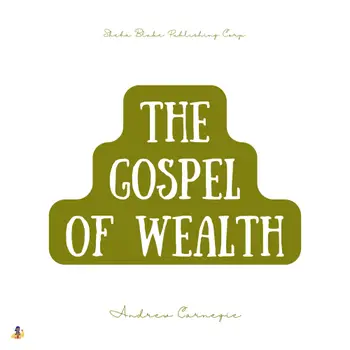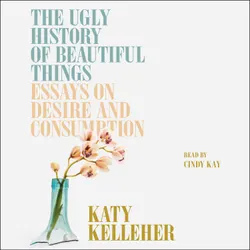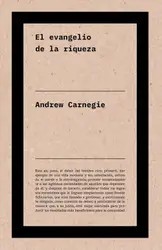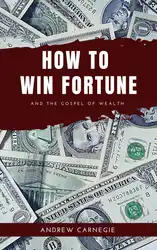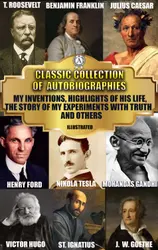What is the proper mode of administering great wealth? It is to address this question that steel tycoon Andrew Carnegie's famous essay "Wealth", or more commonly known as "The Gospel of Wealth" was written (in 1889). His answer – Philanthropy. Not just any philanthropy, but specifically, projects funded and overseen during the life of the magnate, for things that benefit the community and engage the public in maintaining long after the magnate is gone -- libraries, parks, universities, hospitals, medical labs, observatories, entertainment halls, swimming pools, etc. Carnegie deemed it the responsibility of every self-respecting self-made rich person in America and the world, to help the poorer classes to rise. Before he died he had built over 3,000 public libraries throughout the world, and to this day various Carnegie foundations continue his work in support of various social causes.
The Gospel of Wealth
Aloita tämä kirja jo tänään, hintaan 0€
- Kokeilujakson aikana käytössäsi on kaikki sovelluksen kirjat
- Ei sitoumusta, voit perua milloin vain
Kirjailija:
Lukija:
Kieli:
englanti
Muoto:
Kaiken maailman kauhua II : Kauhua kaikkialla
Merja Leppälahti
bookThe Land of the Spotted Eagle : An Ethnographic Description of Traditional Lakota Life and Customs
Luther Standing Bear
bookOscar Wilde : From success to scandal
50 minutes
bookUskontopuhetta : Uskonnon monet merkitykset
Martin Ubani, Titus Hjelm, Petra Kuivala
bookGeronimo's Story of His Life (Illustrated Edition) : With Original Photos
Geronimo
bookRare Tongues : The Secret Stories of Hidden Languages
Lorna Gibb
bookThe Ugly History of Beautiful Things : Essays on Desire and Consumption
Katy Kelleher
audiobookbookBizarre World : A Collection of the World's Creepiest, Strangest, and Sometimes Most Hilarious Traditions
E. Reid Ross
bookThe Human Gene Editing Debate
John H. Evans
audiobookDream Psychology
Sigmund Freud
bookThe Unreality of Memory : Notes on Life in the Pre-Apocalypse
Elisa Gabbert
bookWomen of Myth : From Deer Woman and Mami Wata to Amaterasu and Athena, Your Guide to the Amazing and Diverse Women from World Mythology
Jenny Williamson, Genn McMenemy
audiobookbook
100 Quotes That Will Change Your life
Napoleon Hill, Steve Jobs, Lao Tzu, Sam Levenson, Winston Churchill, George Eliot, Franklin D. Roosevelt, Theodore Roosevelt, Henry Ford, Buddha, Norman Vincent Peale, John D. Rockefeller, Oscar Wilde, Elon Musk, Mahatma Gandhi, Stephen King, Vincent van Gogh, Andrew Carnegie, Paulo Coelho, Muhammad Ali
audiobookMa vie et mon œuvre + Autobiographie d'Andrew Carnegie : 2 livres audios
Henry Ford, Andrew Carnegie
audiobookEl evangelio de la riqueza
Andrew Carnegie
bookAutobiography of Andrew Carnegie
Andrew Carnegie
audiobookbookThe Gospel of Wealth
Andrew Carnegie
bookHow to win Fortune : And The Gospel of Wealth
Andrew Carnegie
bookAutobiography of Andrew Carnegie
Andrew Carnegie
audiobookbookRound the World
Andrew Carnegie
bookAutobiography of Andrew Carnegie : With The Gospel of Wealth
Andrew Carnegie
bookClassic Collection of Autobiographies : My Inventions, Highlights of His Life, The Story of My Experiments with Truth and others
Flavius Josephus, Caius Julius Caesar, Saint Augustine, Saint Ignatius, Earl of Chesterfield, Benjamin Franklin, Ulysses S. Grant, Theodore Roosevelt, Andrew Carnegie, Nikola Tesla, Henry Ford, Johan Wolfgang von Goethe, Victor Hugo, M. K. Gandhi
bookAutobiography of Andrew Carnegie : With The Gospel of Wealth
Andrew Carnegie
book
